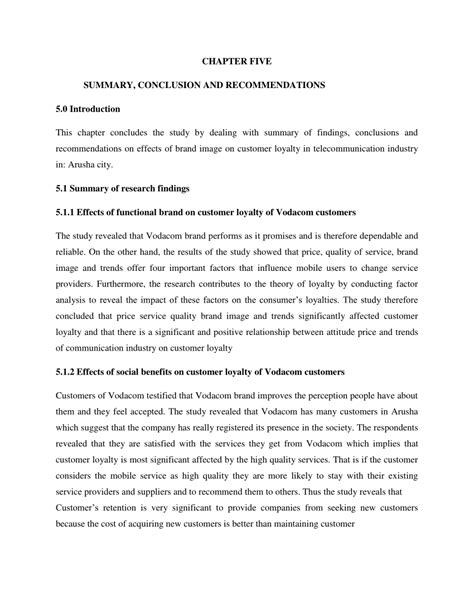Intro
Discover the potential risks of Chromium supplements, including 5 common side effects. Learn about Chromiums impact on blood sugar, weight loss, and overall health, and understand the benefits and drawbacks of this popular mineral.
Chromium is a mineral that plays a crucial role in the body's metabolism, particularly in the regulation of blood sugar levels and the synthesis of cholesterol, fats, and proteins. It is also known for its potential benefits in weight loss, improving body composition, and enhancing athletic performance. However, like any supplement, chromium can have side effects, especially when taken in excessive amounts or by individuals with certain health conditions. Understanding these side effects is essential for anyone considering chromium supplementation.
The importance of being aware of chromium's side effects cannot be overstated. While chromium is generally considered safe, its interaction with other medications or its effects on certain health conditions can be significant. Moreover, the quality and form of chromium supplements can vary widely, which may influence their safety and efficacy. As the demand for chromium supplements grows, so does the need for comprehensive information on their potential risks.
Despite its benefits, chromium supplementation is not without controversy. Some studies have raised concerns about the long-term safety of chromium supplements, particularly in relation to their potential impact on kidney and liver function. Additionally, the lack of regulation in the supplement industry means that the quality of chromium supplements can vary significantly, which may affect their safety profile. For these reasons, it is crucial to approach chromium supplementation with caution and to be well-informed about its potential side effects.
Introduction to Chromium Side Effects

Chromium side effects can range from mild to severe and may vary depending on the individual, the dosage, and the form of chromium taken. Common side effects include gastrointestinal issues such as nausea, vomiting, and diarrhea. These effects are usually temporary and may subside as the body adjusts to the supplement. However, in some cases, chromium can cause more serious side effects, especially in individuals with pre-existing medical conditions or those taking certain medications.
Common Chromium Side Effects

Some of the common side effects associated with chromium supplementation include:
- Gastrointestinal disturbances: Nausea, vomiting, diarrhea, and stomach pain are among the most frequently reported side effects.
- Headaches: Some individuals may experience headaches, possibly due to the mineral's effect on blood sugar levels and neurotransmitter function.
- Dizziness and fatigue: Chromium can cause dizziness and fatigue, particularly when first starting the supplement or taking high doses.
- Skin reactions: Rarely, chromium can cause skin reactions, including itching, redness, and rashes.
Understanding the Mechanism Behind Chromium Side Effects
The mechanism behind chromium's side effects is not entirely understood but is believed to be related to its effects on insulin sensitivity, neurotransmitter balance, and potentially its antioxidant properties. Chromium, especially in its picolinate form, can easily cross the blood-brain barrier, which may influence mood and cognitive function, potentially leading to side effects like anxiety and mood swings in some individuals.Severe Chromium Side Effects

While rare, severe side effects can occur, particularly with high doses of chromium or in individuals with certain health conditions. These can include:
- Kidney damage: There is concern that long-term use of chromium supplements, especially at high doses, may impair kidney function.
- Liver damage: Similarly, high doses of chromium have been associated with potential liver damage, though this is less commonly reported.
- Interactions with medications: Chromium can interact with various medications, including diabetes medications, blood thinners, and thyroid medications, potentially leading to serious health complications.
Special Considerations for Chromium Supplementation
Certain individuals should exercise caution or avoid chromium supplementation altogether, including pregnant or breastfeeding women, individuals with diabetes, those with kidney or liver disease, and people taking certain medications. It is also important to choose a high-quality supplement and follow the recommended dosage to minimize the risk of side effects.Managing Chromium Side Effects

To manage chromium side effects, individuals can consider the following strategies:
- Start with a low dose: Gradually increasing the dose can help minimize side effects.
- Choose a gentle form: Chromium polynicotinate or chromium chloride may be better tolerated than chromium picolinate.
- Monitor health markers: Regularly checking blood sugar, kidney function, and liver enzymes can help identify any adverse effects early.
- Consult a healthcare provider: Before starting chromium supplementation, especially if you have a medical condition or take medications, consult with a healthcare provider to discuss potential risks and benefits.
Future Directions in Chromium Research
Further research is needed to fully understand the safety and efficacy of chromium supplements, particularly in relation to their long-term use and potential interactions with other nutrients and medications. Studies investigating the optimal dosage, the best form of chromium for supplementation, and its effects on different populations (such as athletes, individuals with type 2 diabetes, and the elderly) would provide valuable insights for both consumers and healthcare professionals.Conclusion and Recommendations

In conclusion, while chromium supplements offer potential benefits, they can also have side effects that range from mild to severe. Being informed about these potential risks and taking steps to minimize them, such as choosing a high-quality supplement, following the recommended dosage, and monitoring health markers, is crucial for safe supplementation. As with any dietary supplement, it is essential to weigh the benefits against the potential risks and to consult with a healthcare provider before starting chromium supplementation, especially for individuals with pre-existing health conditions or those taking medications.
Final Thoughts on Chromium Supplementation
The decision to supplement with chromium should be made with careful consideration of the potential benefits and risks. By understanding the possible side effects and taking a cautious approach, individuals can make informed decisions about whether chromium supplementation is right for them. As research continues to uncover the effects of chromium on human health, staying updated on the latest findings will be essential for maximizing the benefits of chromium while minimizing its risks.What are the most common side effects of chromium supplementation?
+The most common side effects include gastrointestinal disturbances like nausea, vomiting, and diarrhea, as well as headaches and dizziness.
Can chromium supplements interact with other medications?
+Yes, chromium can interact with various medications, including diabetes medications, blood thinners, and thyroid medications, potentially leading to serious health complications.
How can I minimize the risk of side effects when taking chromium supplements?
+To minimize the risk of side effects, start with a low dose, choose a gentle form of chromium, monitor your health markers regularly, and consult with a healthcare provider before starting supplementation.
We invite you to share your thoughts and experiences with chromium supplementation in the comments below. Have you noticed any benefits or side effects from taking chromium supplements? Your insights can help others make informed decisions about their health. Additionally, if you found this article informative, please consider sharing it with others who may benefit from this information. Together, we can promote a healthier understanding of dietary supplements and their effects on our well-being.
